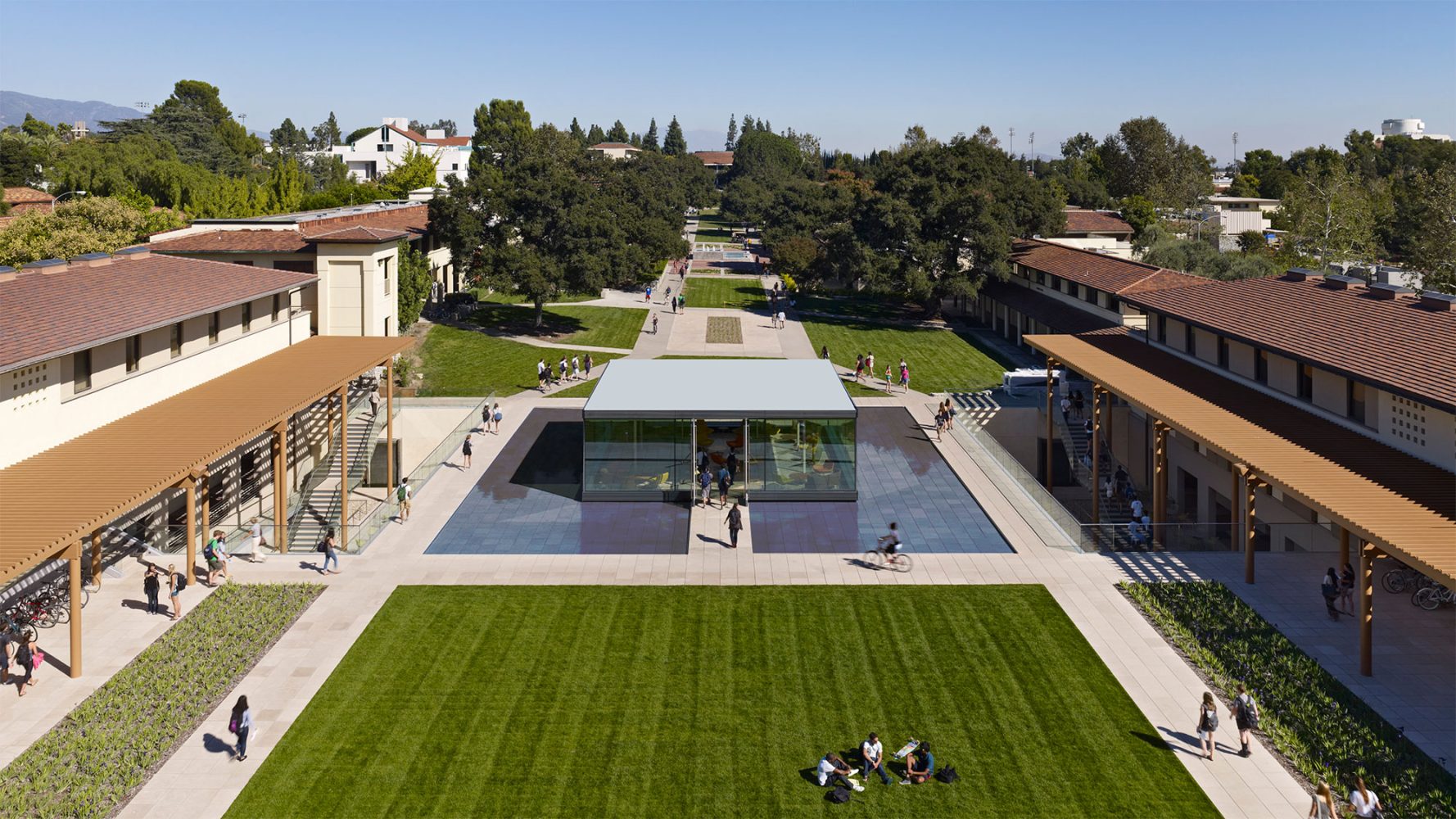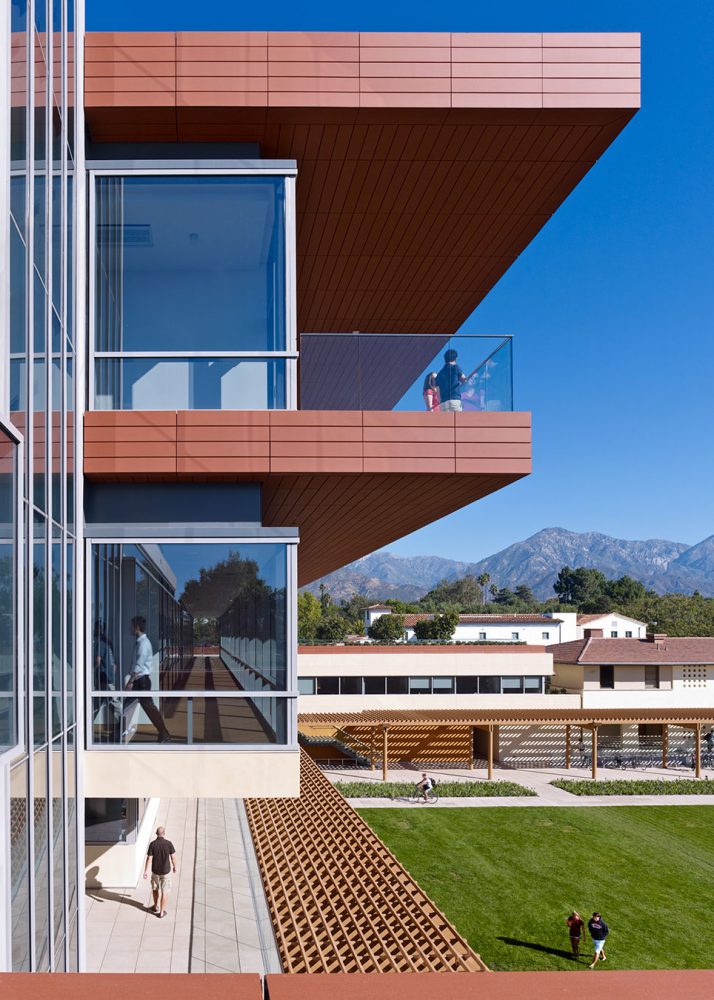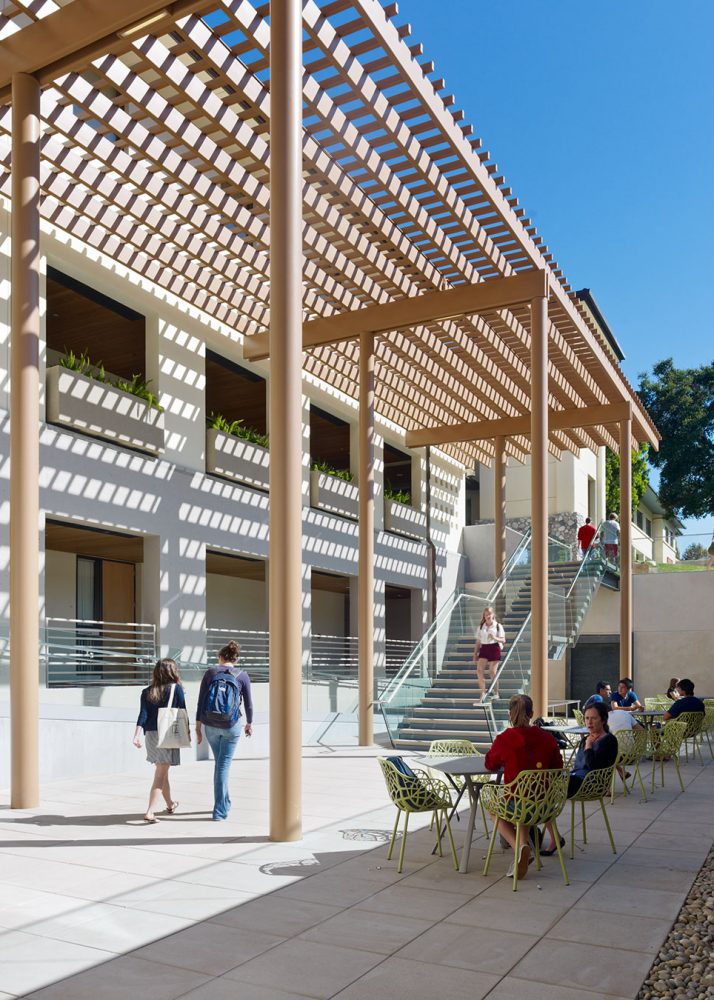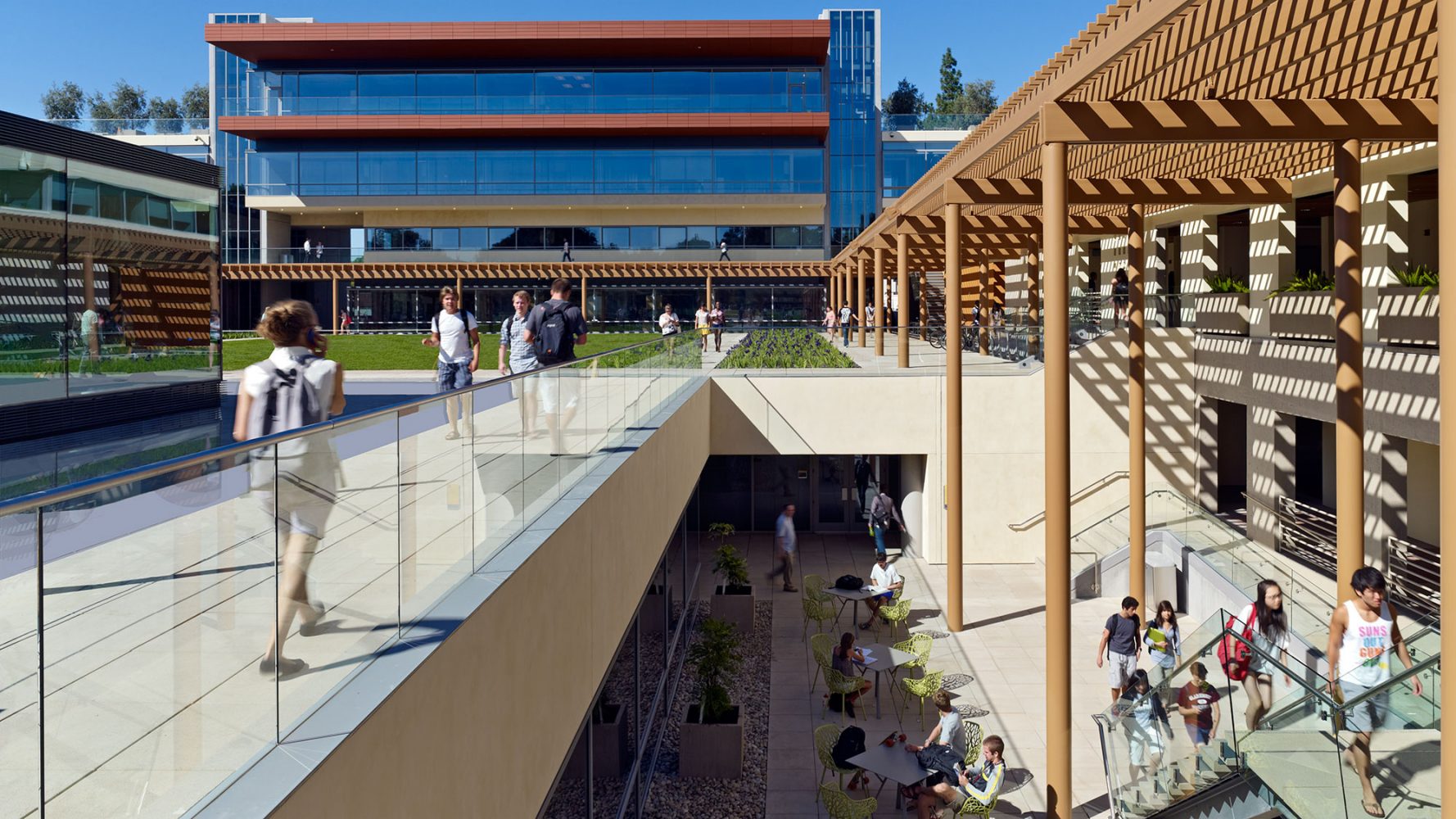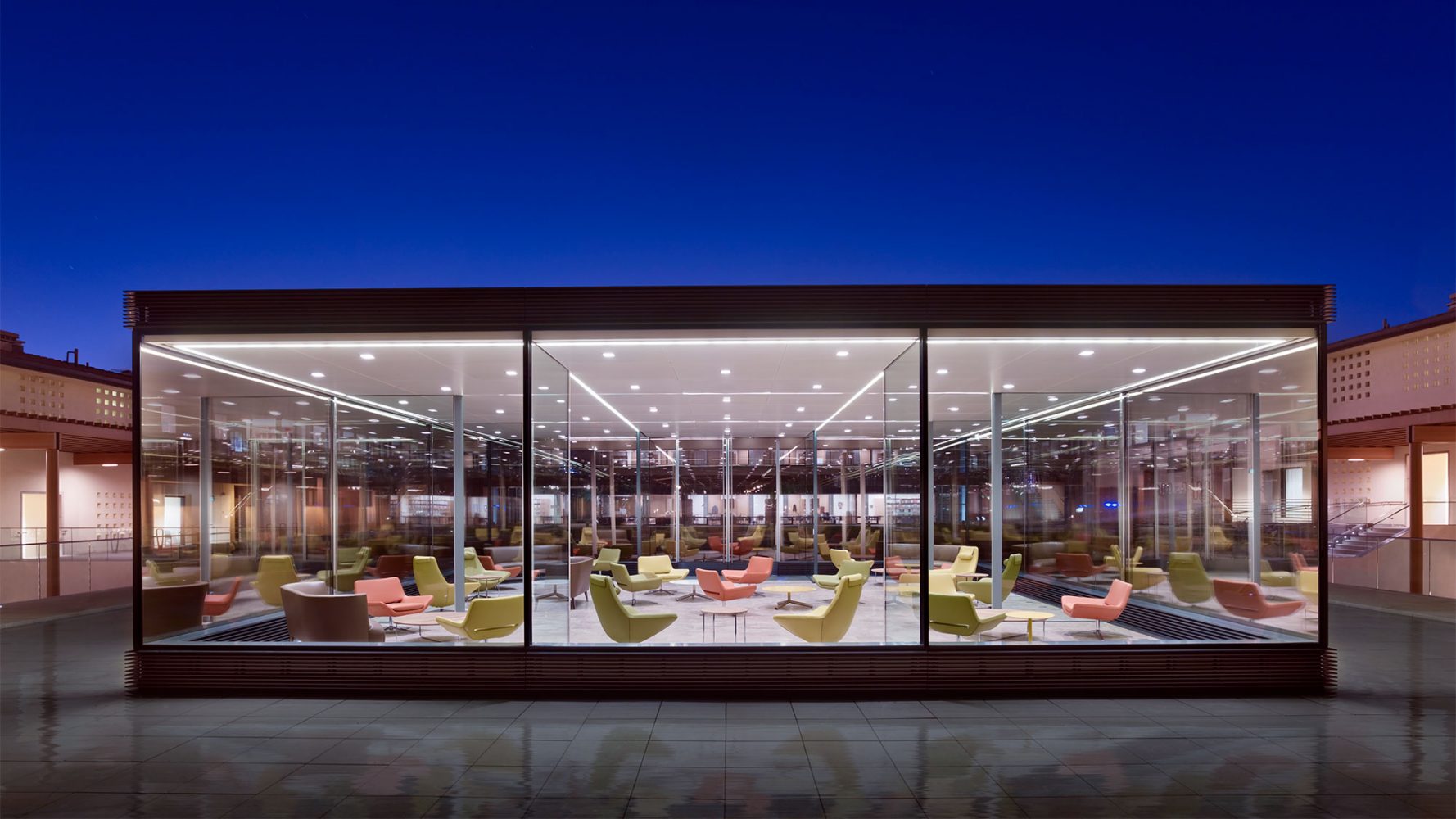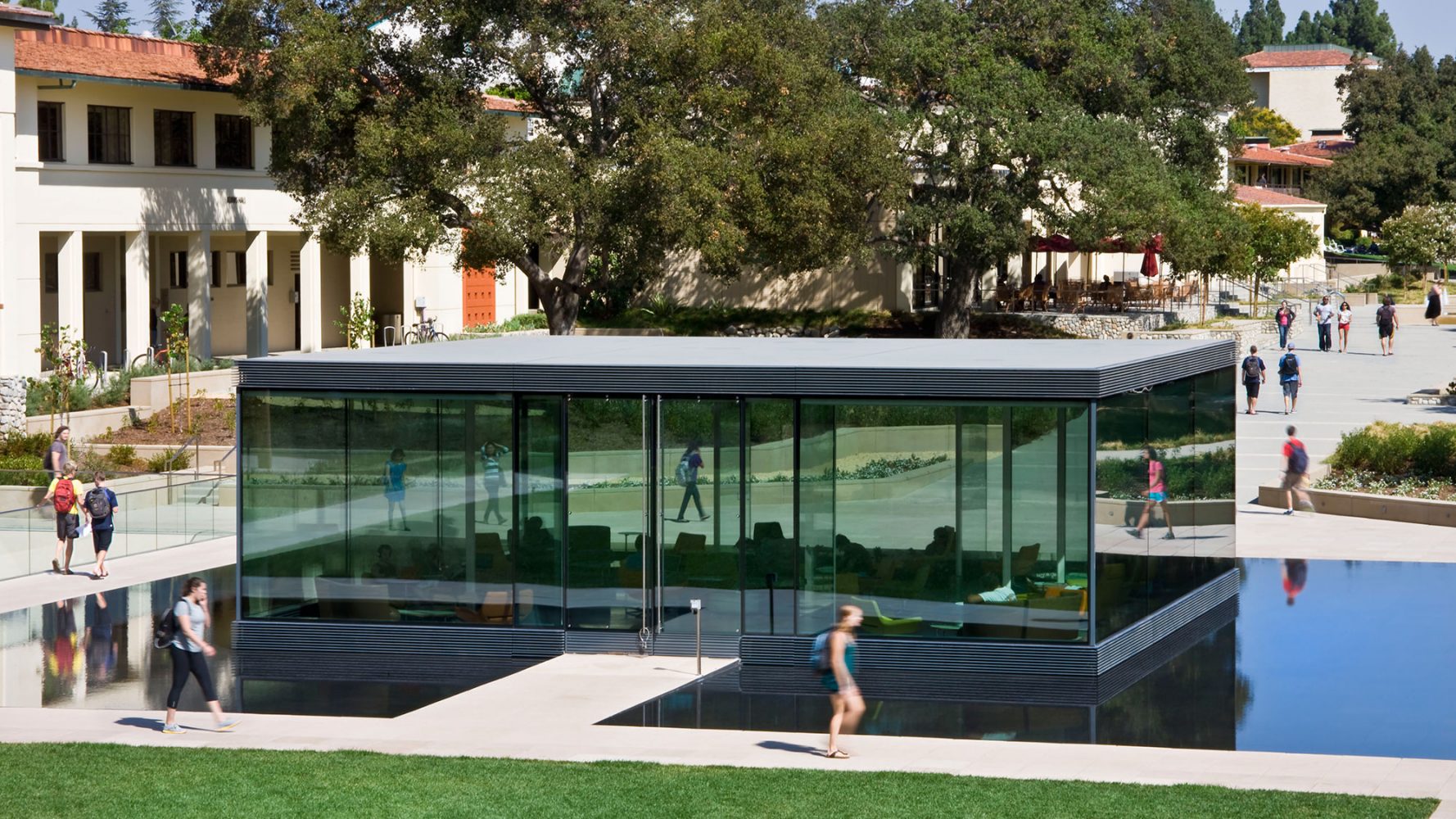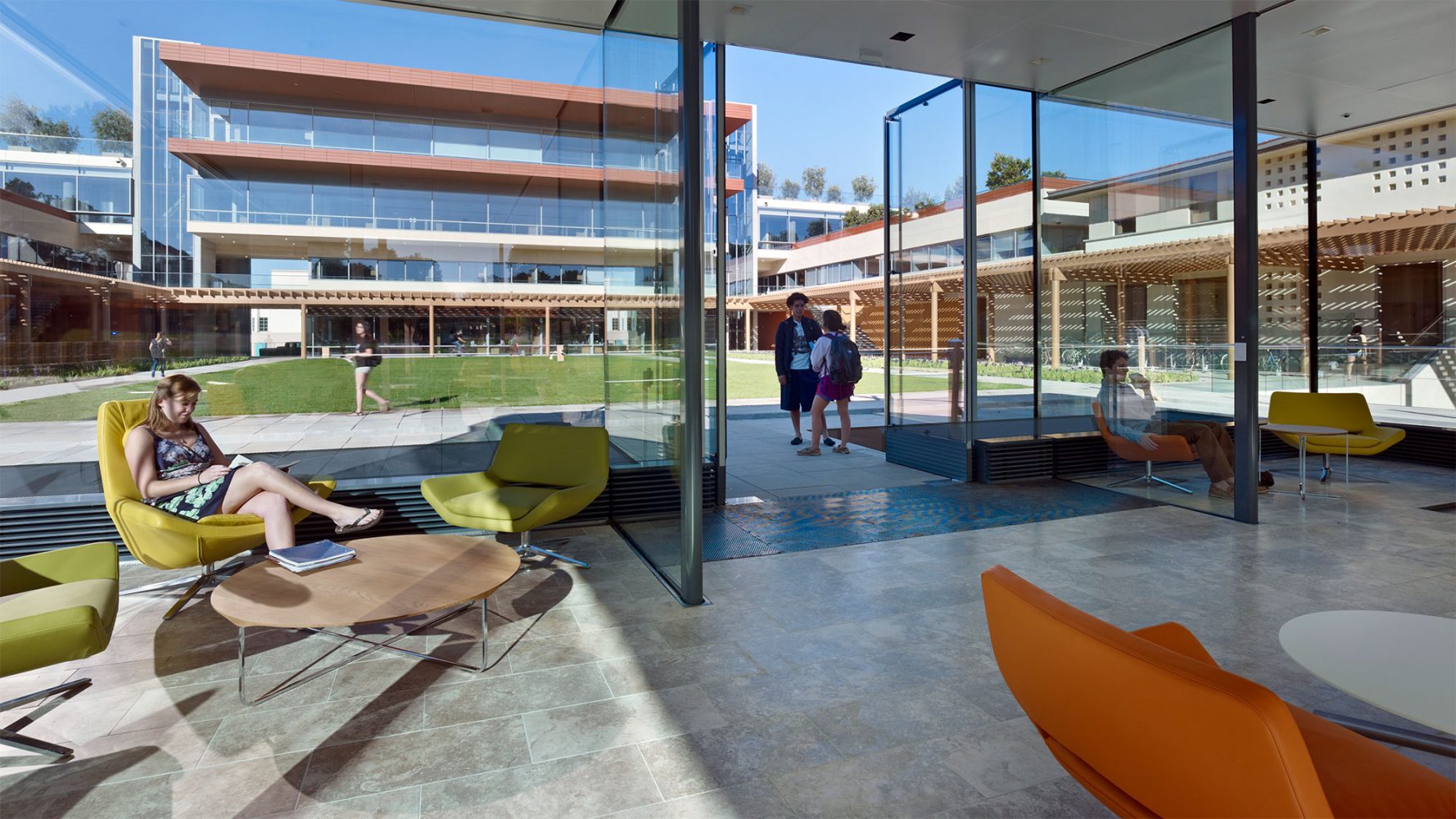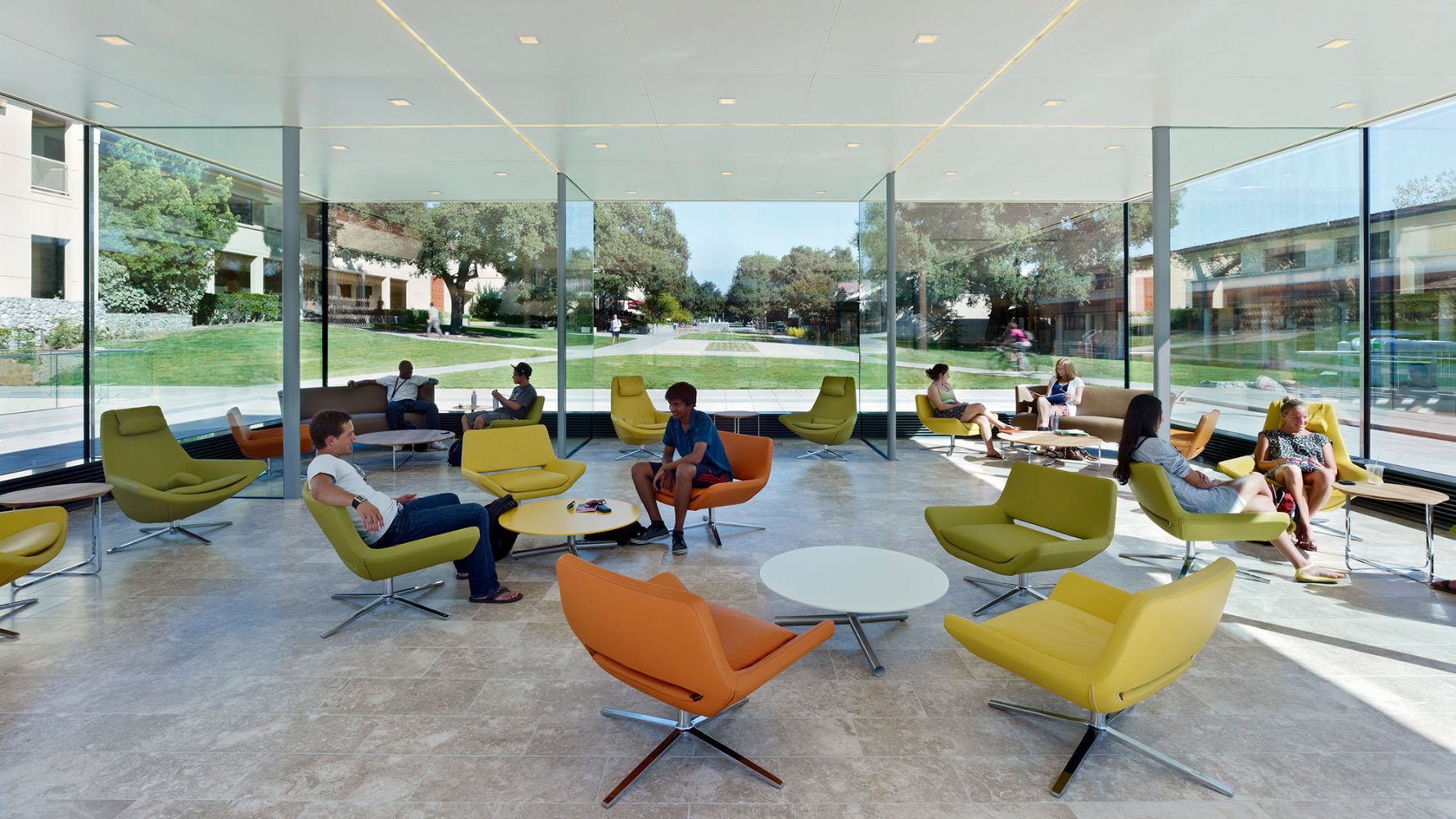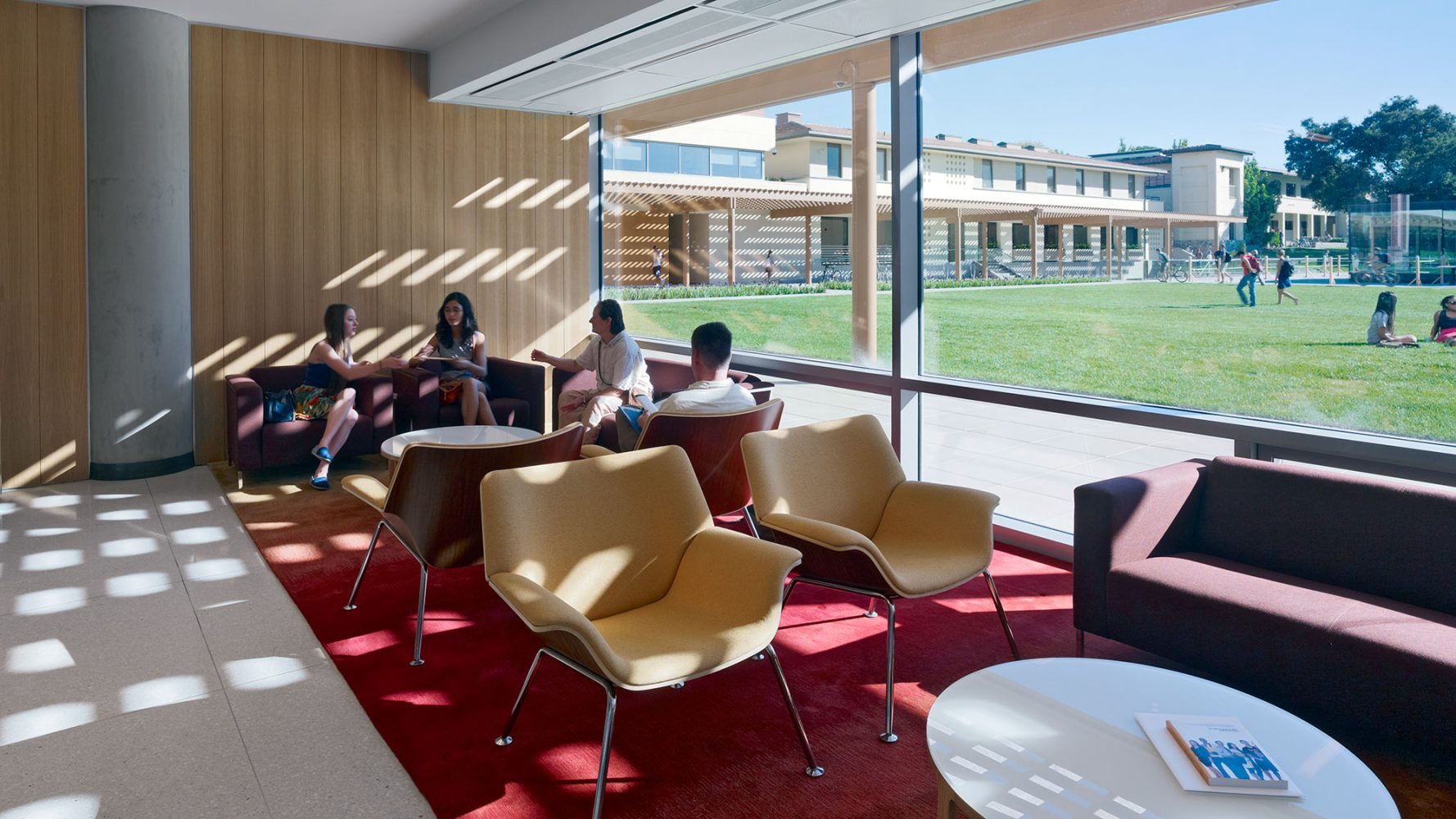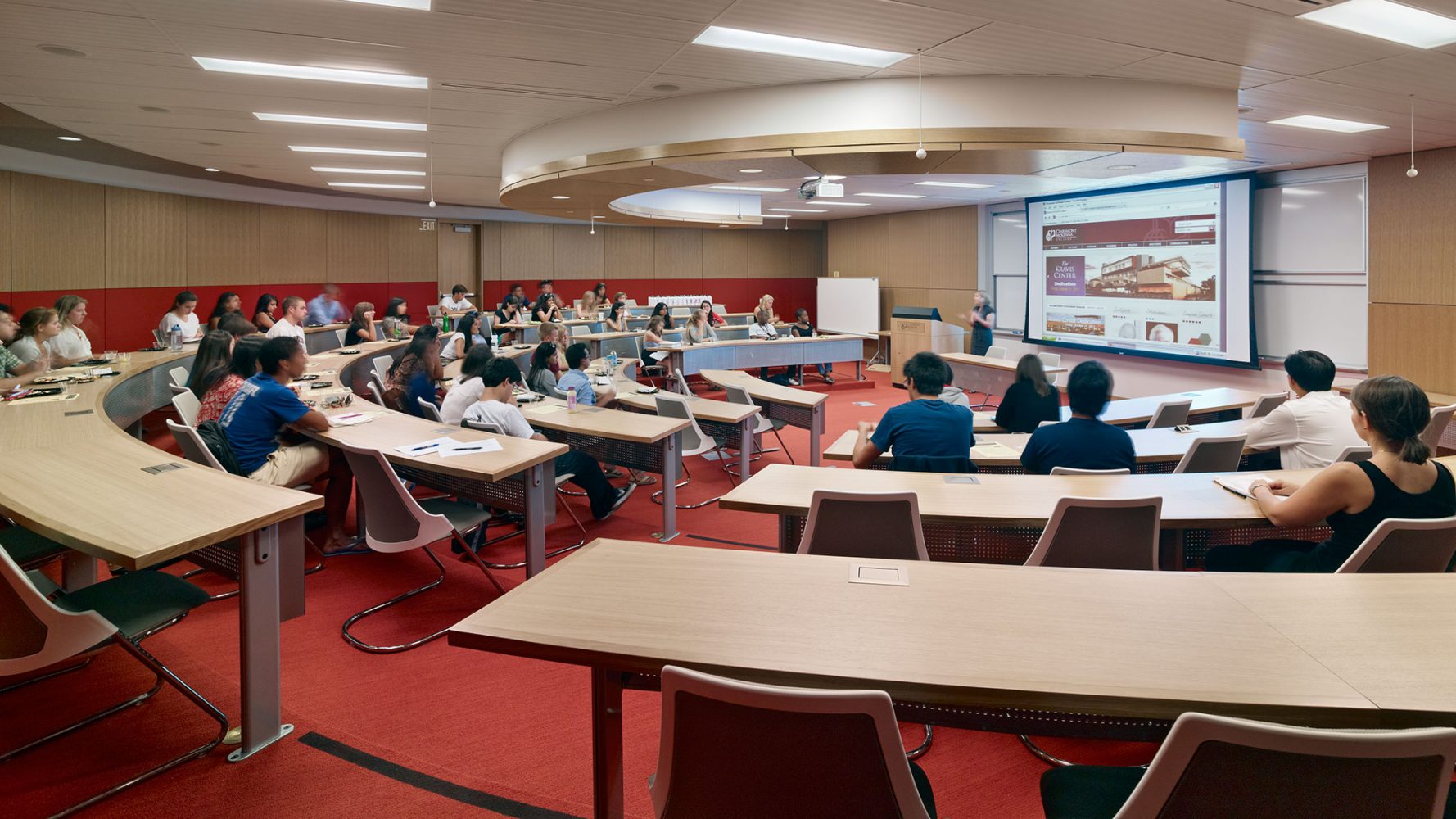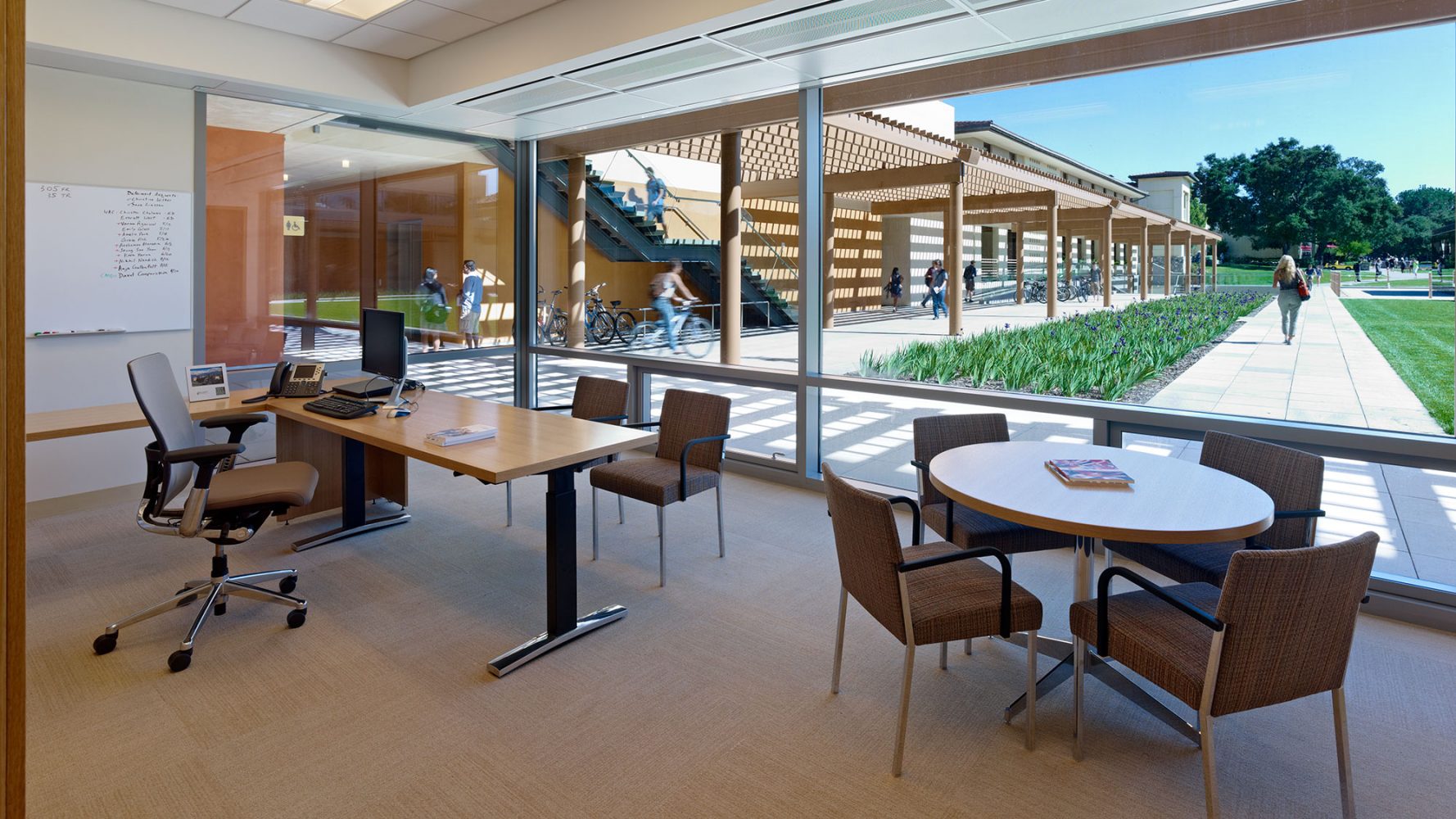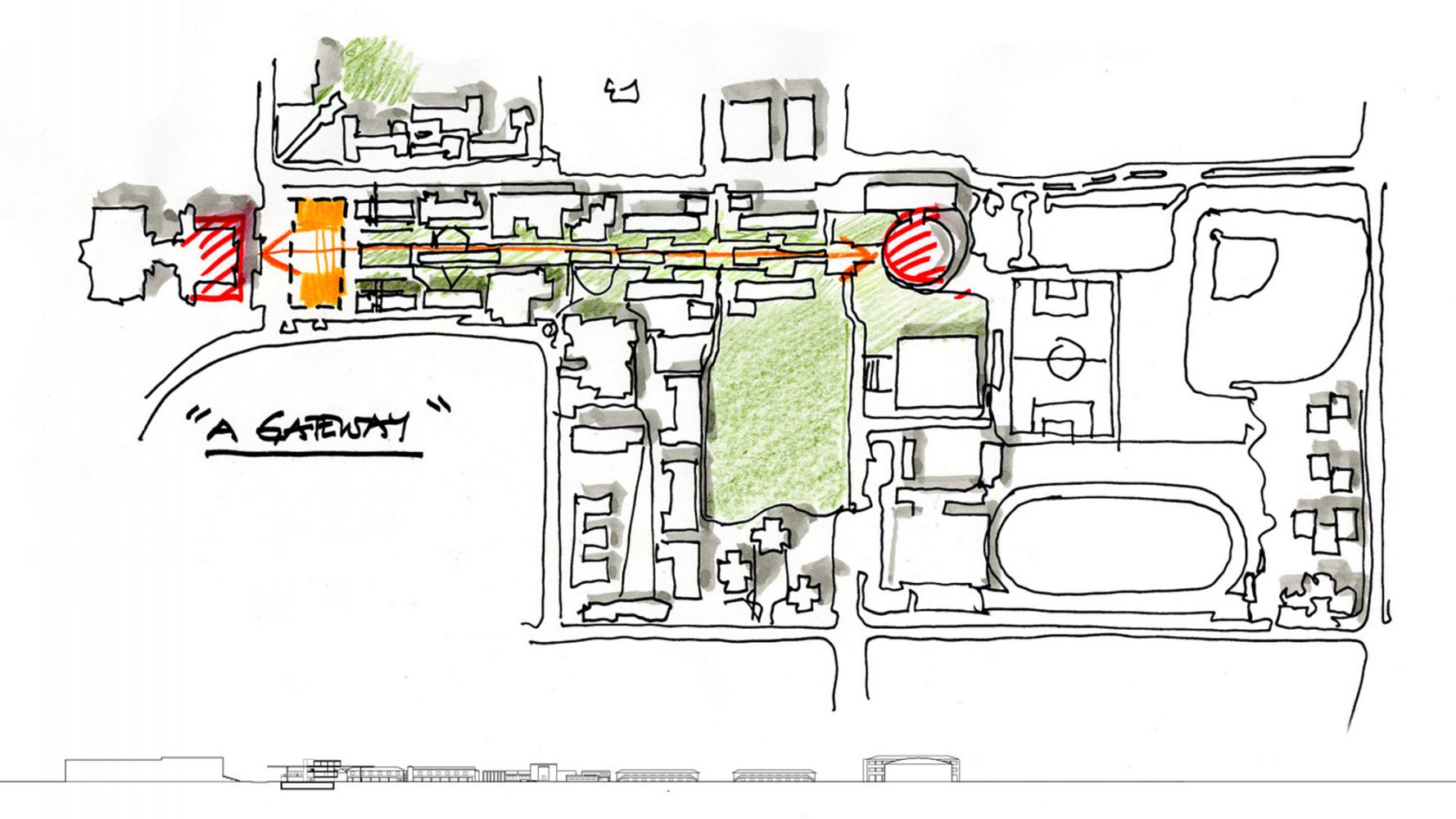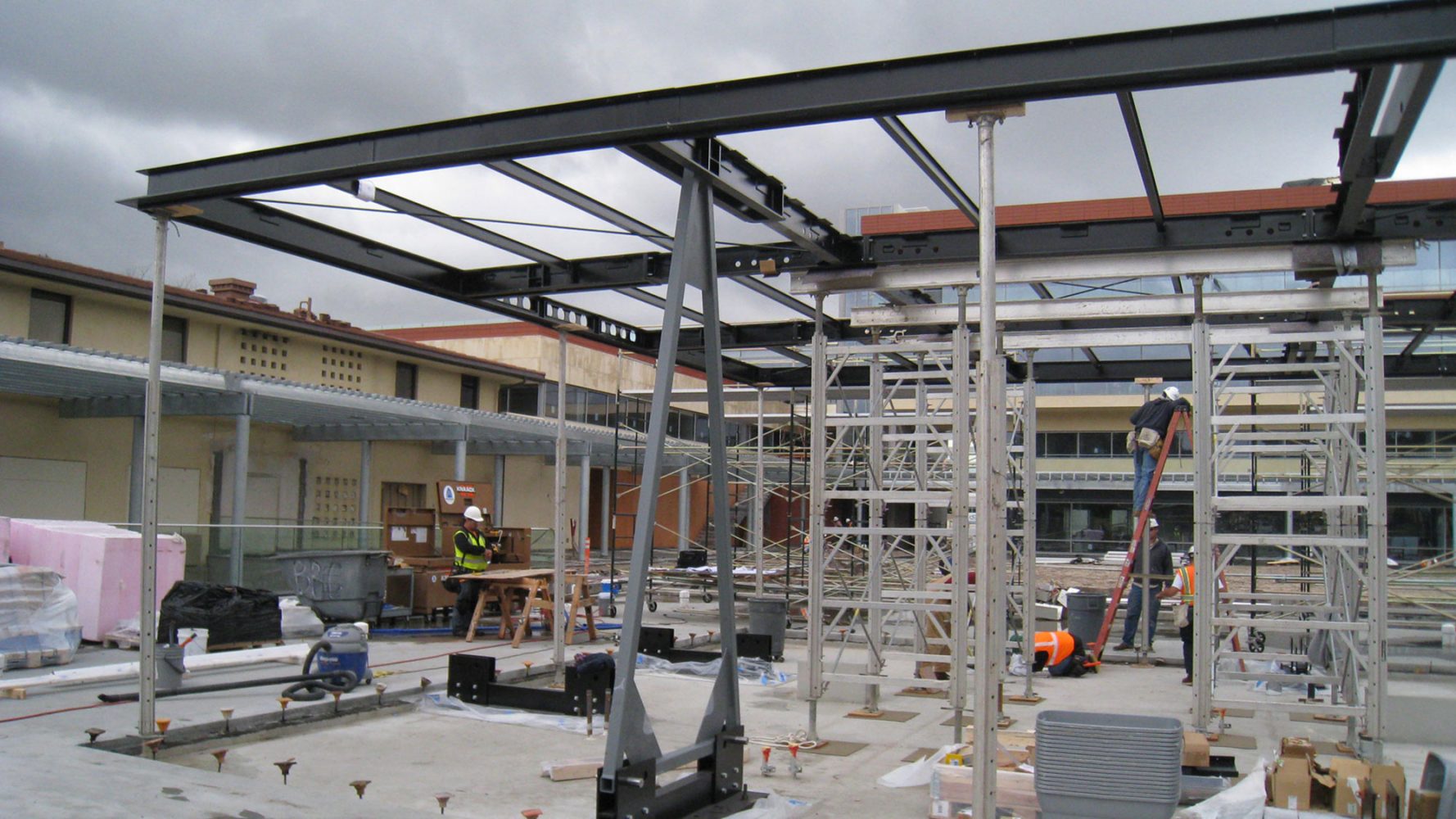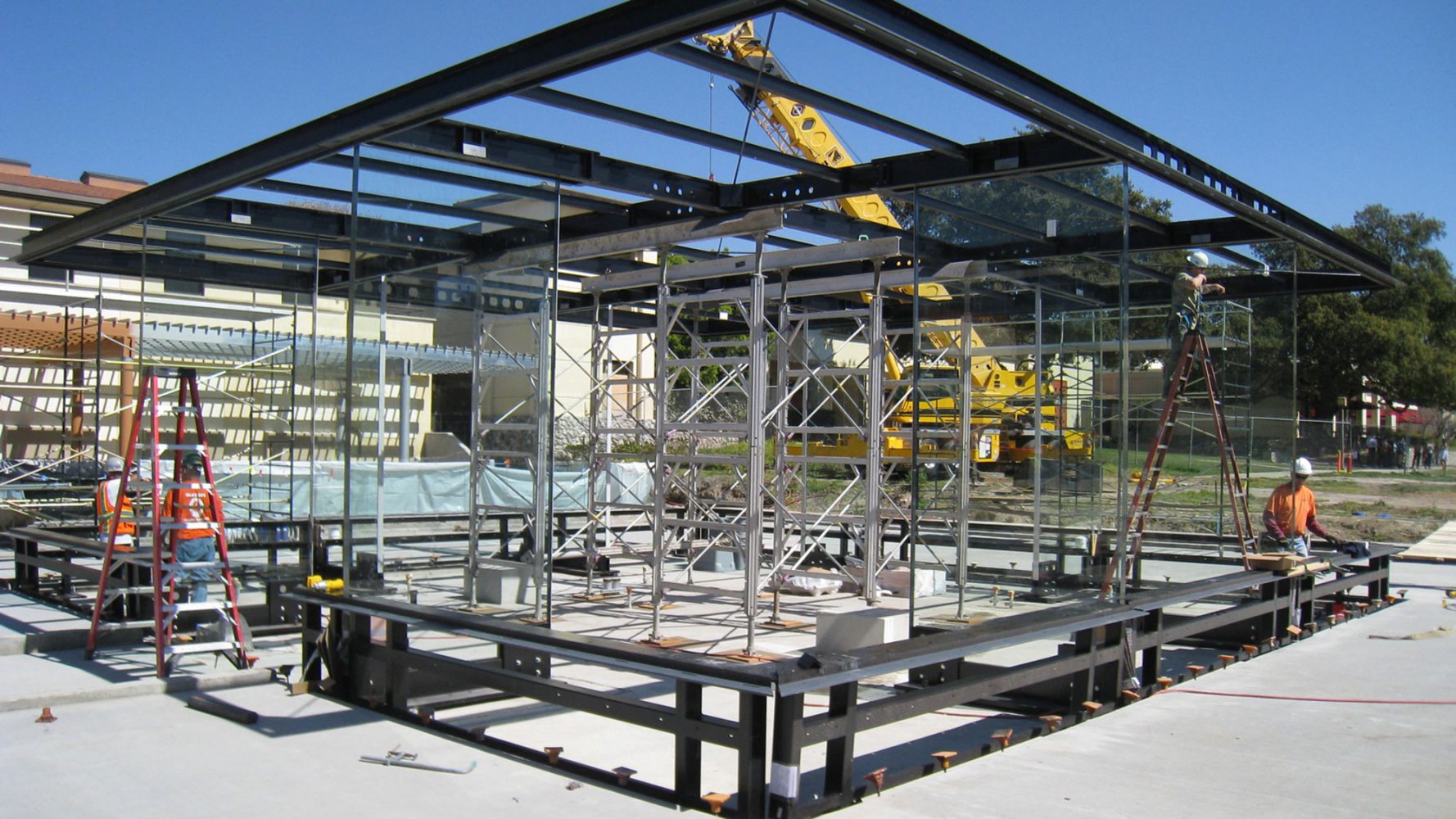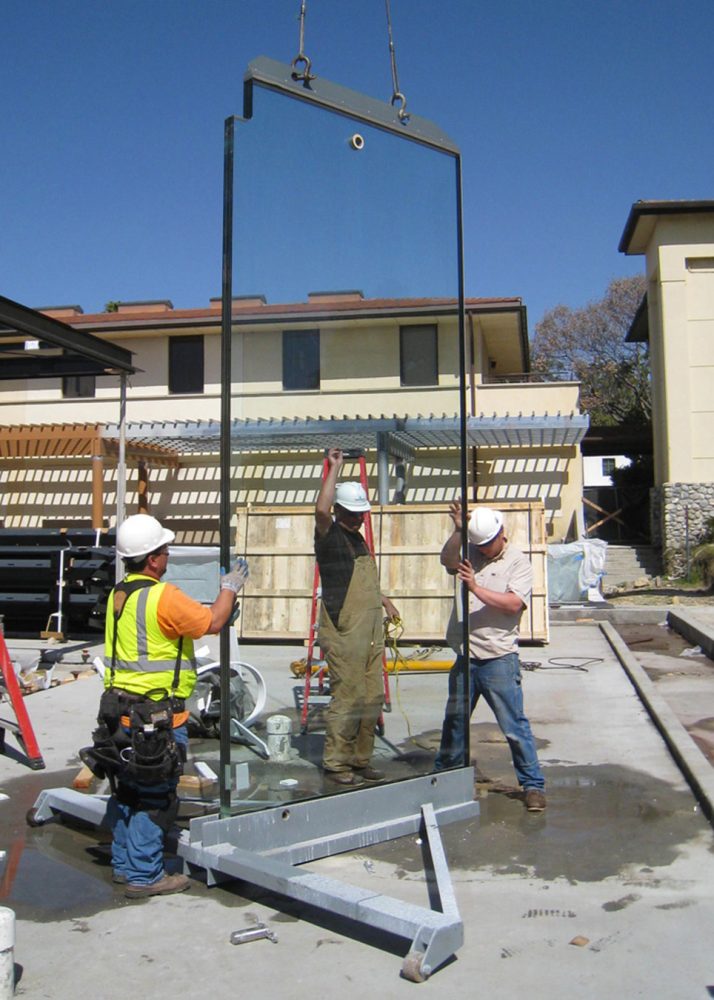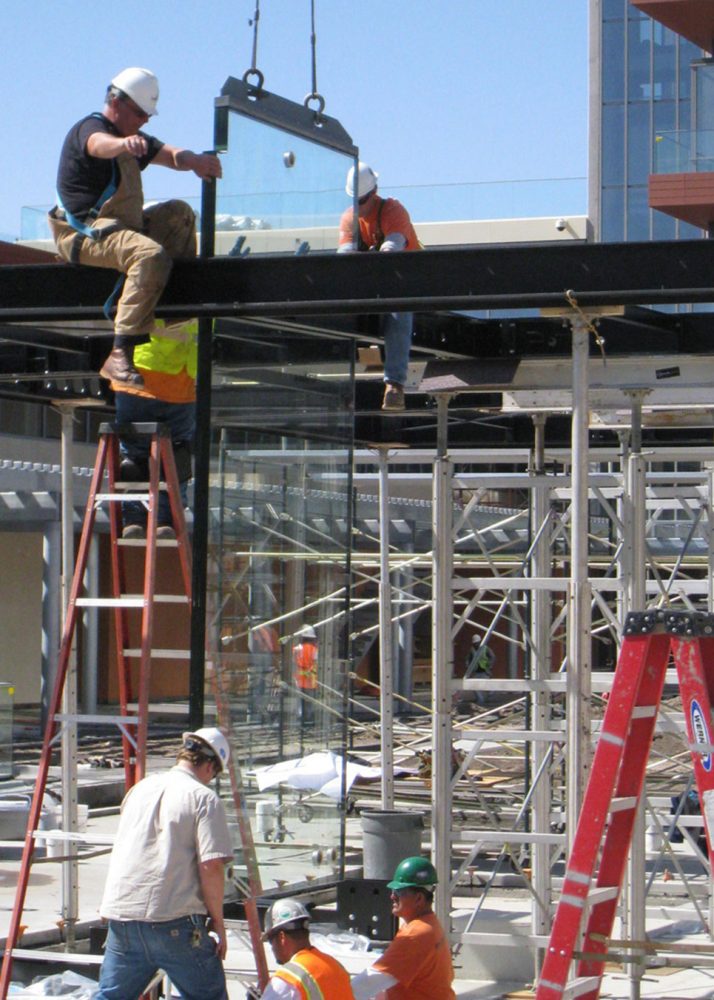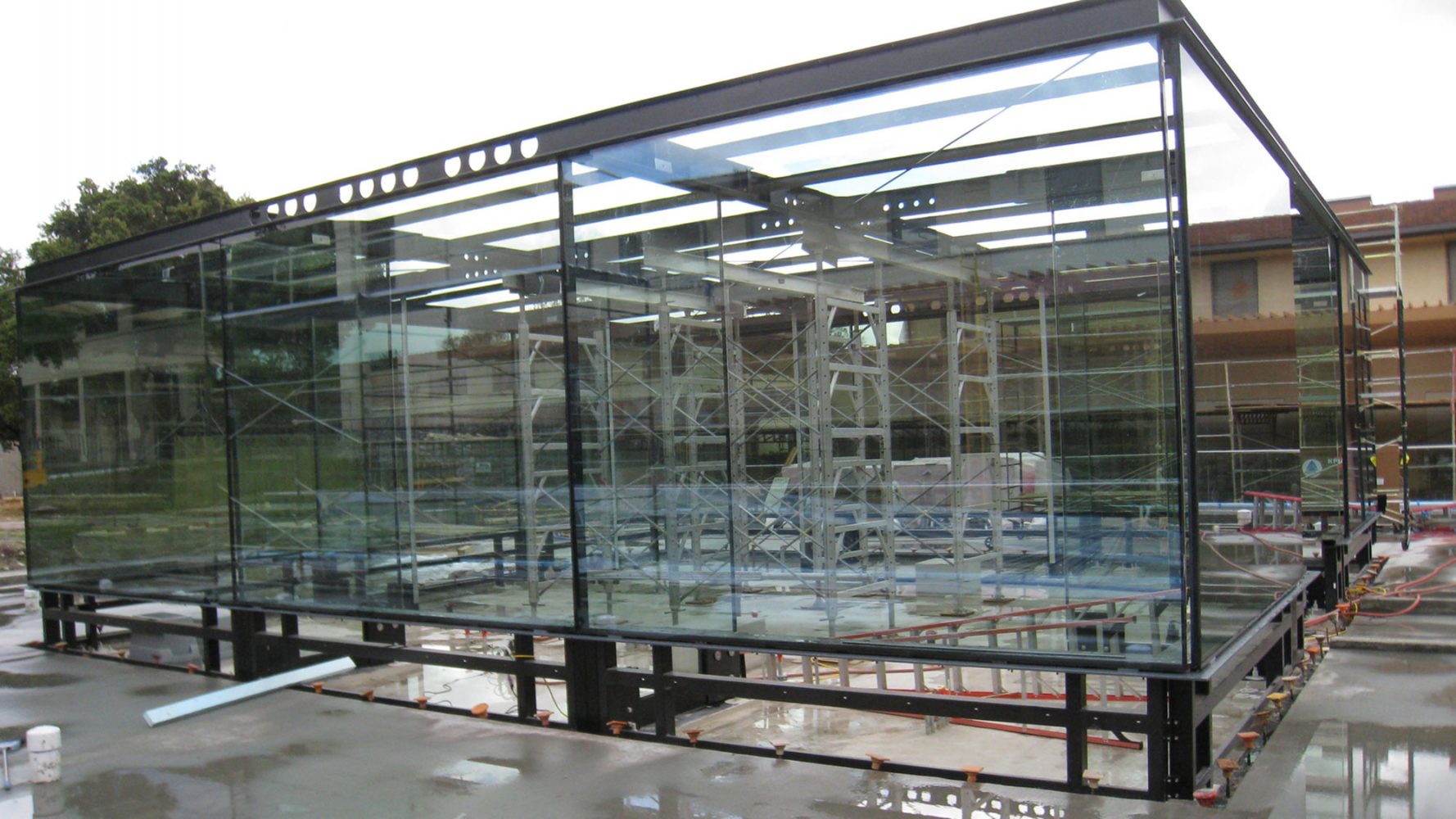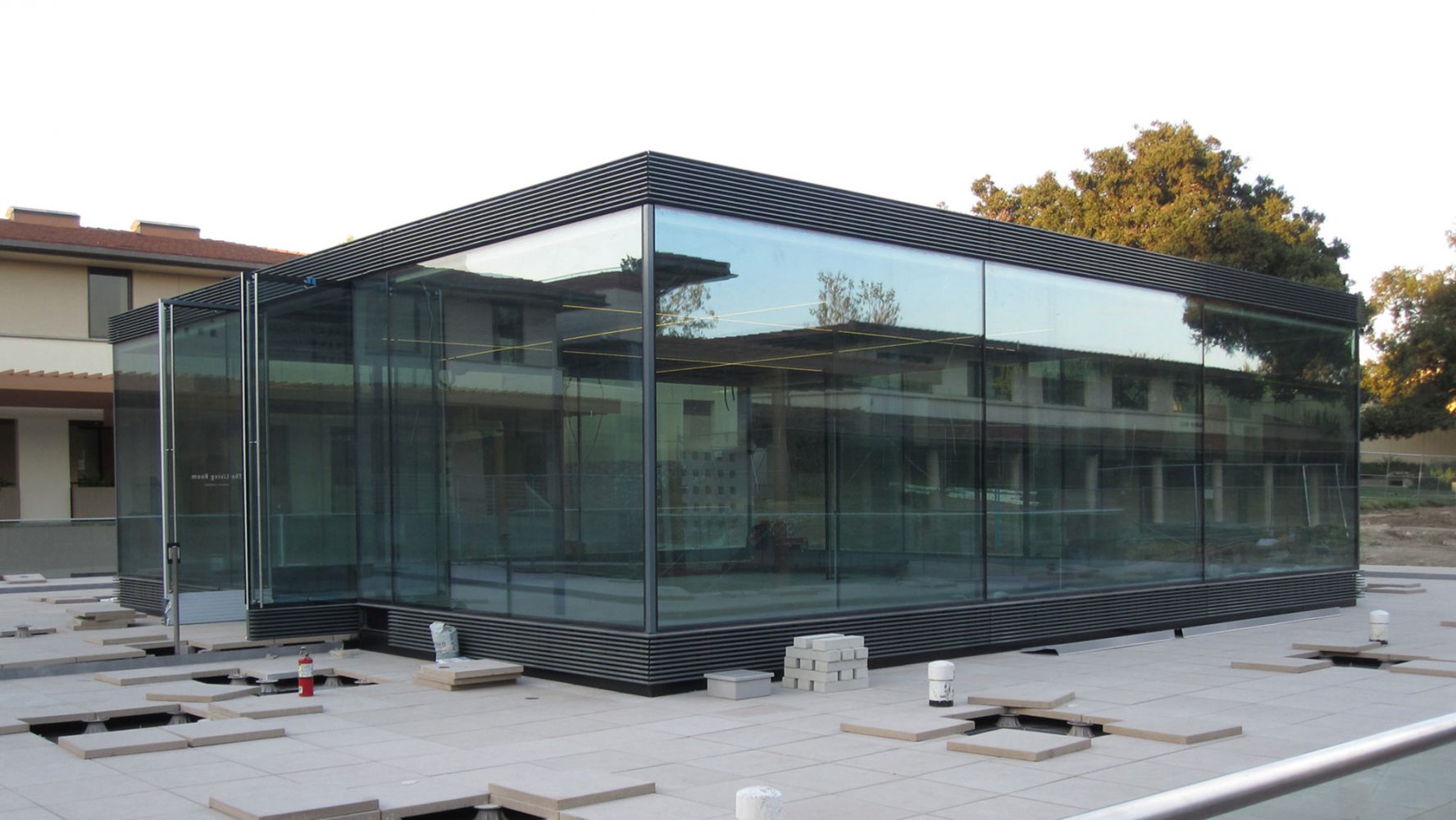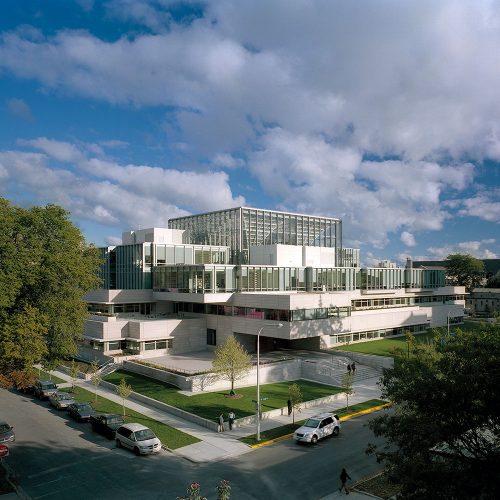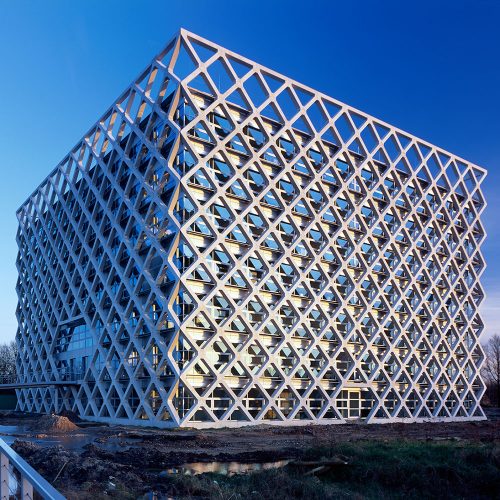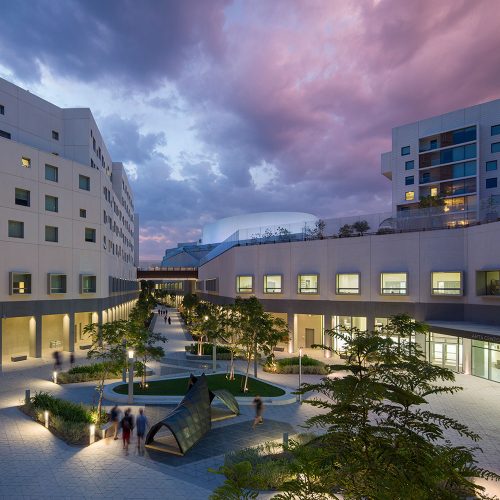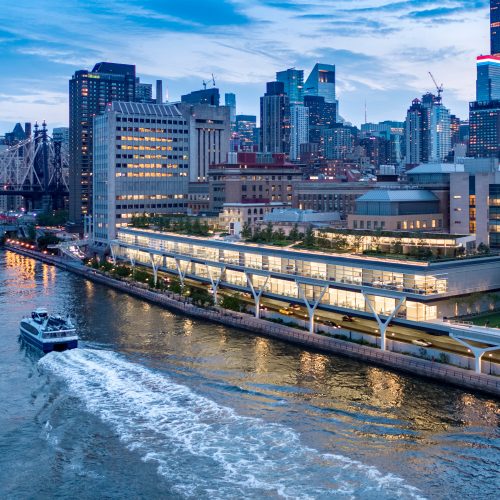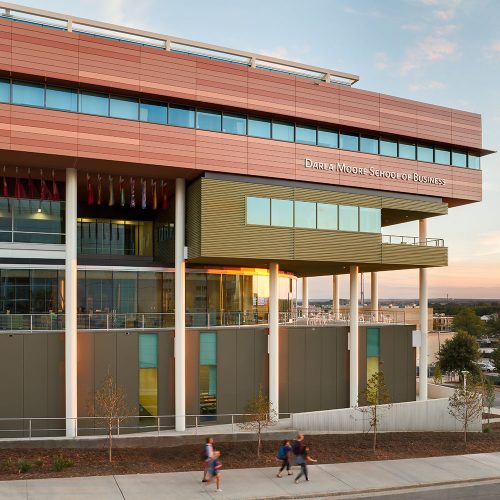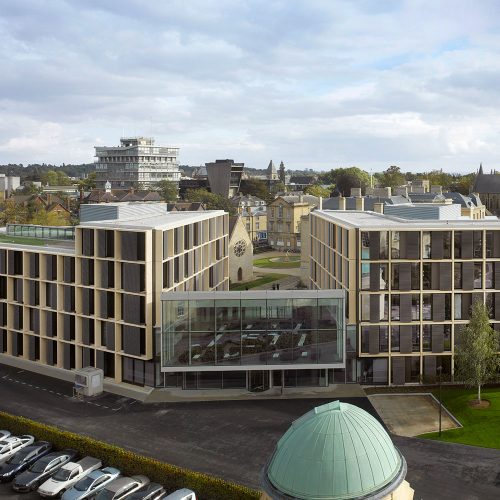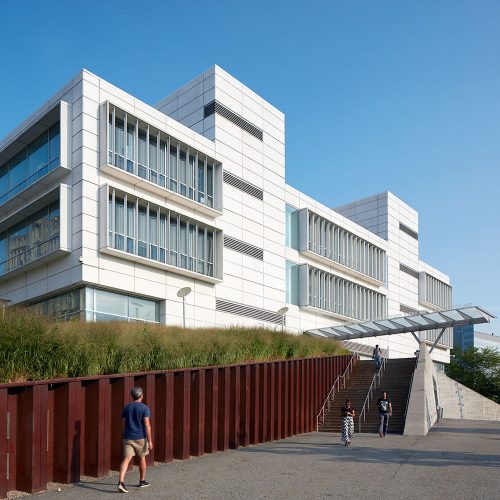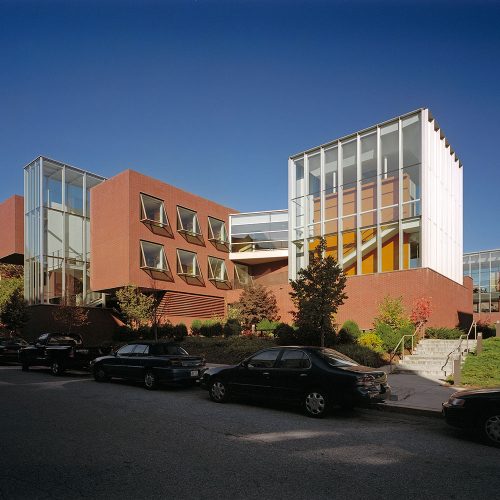Claremont McKenna College, Kravis Center
The building’s terraced volumes anchor the now extended main axis of the campus and frame a new “living room,” comprised of a transparent, all-glass structure that has become a favorite destination of students, visitors, and faculty.
With the Kravis Center, Rafael Viñoly Architects designed a complex for Claremont McKenna College that creates a prominent western gateway and expands the campus mall along its main axis. This LEED Gold-certified facility houses not only much needed classrooms, space for five of the college’s research institutes, and offices for faculty, admissions, and financial aid, but also creates a new destination on campus in the form of a “Living Room” along the mall’s central axis. This entirely glass-supported pavilion preserves views of the mall and creates a new social destination on campus.
The site was formerly occupied by cramped and poorly planned facilities that the college had outgrown and decided to demolish. By leaving the resulting space open and building farther to the west, Rafael Viñoly Architects revealed exposures to the formerly obscured Roberts North and South Halls that now face each other across the expanded campus quad.
The new building includes a series of four terraced floors that step back from the quad as the building rises. This design not only limits the building mass to a scale appropriate to the low-rise character of the campus and adjacent community, but also augments interior spaces with exterior terraces that can be used for classes or informal meetings. Classrooms on the ground floor, and department and institute spaces on the upper floors, extend the program distribution of the Roberts North and South Halls. Together, the resulting Kravis Center unifies circulation and allows for programmatic synergies through the adjacencies of instructional and administrative spaces in all three buildings. The three buildings together also define a U-shape that encloses a square courtyard at the western end of the campus mall. Throughout the complex, exterior stairways maximize circulation options by connecting the terraces to the ground level and, below, to recessed courtyards.
Excavation created more usable space than the college had originally anticipated. As a result, a parking garage with 60 spaces now occupies the basement of the Kravis Center, and classrooms and financial aid offices are located underneath the campus mall. These areas look out on the landscaped courtyards shared with the lower-level classrooms in the Roberts Halls, allowing natural light into the underground spaces and architecturally connecting them to the upper levels.




